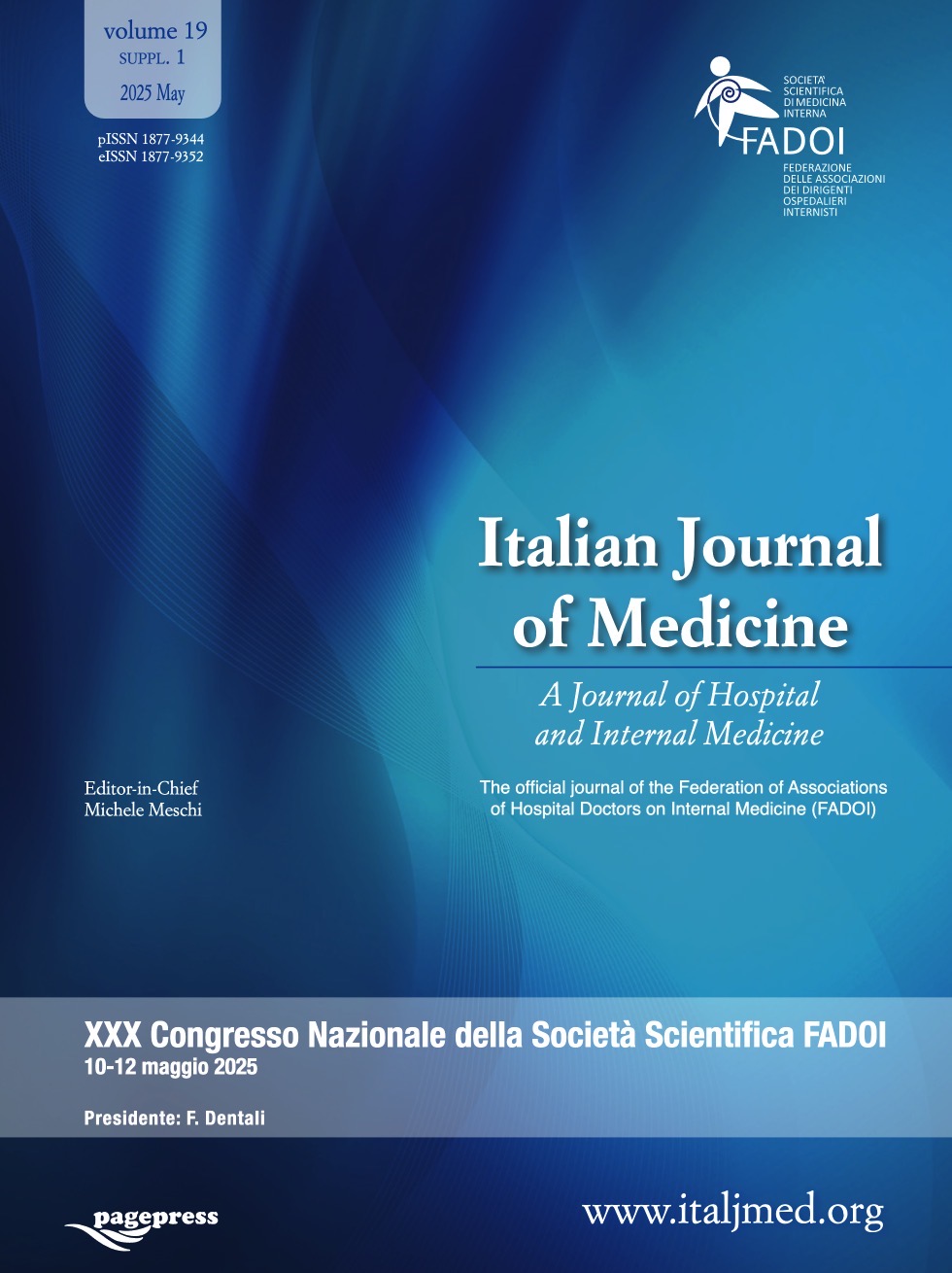XXX FADOI Italian Congress | 10-12 May 2025
25 August 2025
Vol. 19 No. 1(s1) (2025): XXX FADOI Italian Congress | 10-12 May 2025
P17 | Long-term outcome in patients with recurrent pericarditis: preliminary results of an observational study
P. Bindi1, F. Agozzino1, E. Ceriani2, A. Pavarani1, S. Berra1, F. Moda1, S. Macchi1, L. Vena1, A. Brucato1 | 1Ospedale Fatebenefratelli di Milano, 2Ospedale Sacco, Milano, Italy
Publisher's note
All claims expressed in this article are solely those of the authors and do not necessarily represent those of their affiliated organizations, or those of the publisher, the editors and the reviewers. Any product that may be evaluated in this article or claim that may be made by its manufacturer is not guaranteed or endorsed by the publisher.
All claims expressed in this article are solely those of the authors and do not necessarily represent those of their affiliated organizations, or those of the publisher, the editors and the reviewers. Any product that may be evaluated in this article or claim that may be made by its manufacturer is not guaranteed or endorsed by the publisher.
54
Views
0
Downloads







